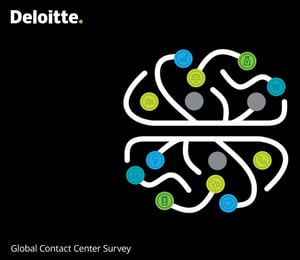3 Minutes
"He was ahead of his time." What does it mean when someone is described like that? Don't stress, it's not a test and I'm going to tell you anyway: it usually means that individual's ideas were considered radical for the rest of society at the time, but later generations see the value and wisdom in them.
"If someone is ahead of his time, it will catch up to him someday."
We'll start with a story that is disturbing when viewed through the lens of modernity: Hungarian doctor Ignaz Semmelweis was the first physician to connect washing hands prior to treating patients with reducing infections and patient illnesses or fatalities. Sadly, his "radical" ideas (and unfortunate lack of tact) lost him his career and led him to a tormented, short life. Today, the importance of hand-washing in fighting the spread of germs is no longer a debatable issue and it is hard to believe there was a time when it was.
The collections industry has not changed much in the past 100 years. In order to collect on an unpaid debt, an agency sends out letters and makes phone calls. In some countries, a collector can still attempt to visit an individual at home to try and collect. But beyond that, the model has not changed appreciably.
But hold it right there - today the industry finds itself at an inflection point. A window of opportunity has opened and agencies willing to be at the knife's edge of progress have the chance to dramatically reshape how collection agencies will operate for the next 100 years. But is the idea ahead of its time?
 Technology has evolved to the point where it is feasible for a collection agency to operate with fewer collection agents than ever before. Between accepting payments through a website, via an IVR, or through the mail, there are a growing number of agencies that see the future of collections and have embraced it. Meanwhile, most continue to hire agents, struggle with high turnover and the risk of complaints and compliance issues. Think of the efficiencies and cost-savings that can go along with such a dramatic reduction in the number of employee representatives to achieve the same level of activity and greater compliance!
Technology has evolved to the point where it is feasible for a collection agency to operate with fewer collection agents than ever before. Between accepting payments through a website, via an IVR, or through the mail, there are a growing number of agencies that see the future of collections and have embraced it. Meanwhile, most continue to hire agents, struggle with high turnover and the risk of complaints and compliance issues. Think of the efficiencies and cost-savings that can go along with such a dramatic reduction in the number of employee representatives to achieve the same level of activity and greater compliance!Today, the answer from most agencies in dealing with a declining right-party contact rate is to throw more agents at the problem. It's a brute force tactic through more phone calls - but is that really the best way forward? If you click on the image above, you'll read that voice communication is expected to remain the most popular channel for call center interactions this year, but its popularity is expected to decline to 47% in 2019 - down from 64% currently - that's a massive drop! Conversely, a 3-fold increase in chat and messaging will make up for much of the decreased interest in talking over the phone., and if you're in the industry you've already noticed this trend.
Maybe the industry, and even the technology, isn't quite ready for a fully agent-less operation. Maybe the agency that tries first will fail, but chances are pretty good (I think) that the first to attempt this model will be looked upon 10 or 20 years from now as ahead of its time. Or maybe it won’t fail - maybe it will mark the beginning of a new paradigm in collections - one where there are fewer preventable infections, er, TCPA violations, and higher survival rates, er, oh - no, that's right...


